A few weeks ago, I received an email containing amongst other updates on what’s new in the world of eating disorder treatment the information that earlier this year the InsideOut Institute was awarded a $1.2M grant from the Medical Research Future Fund (MRFF).
This grant is going to be used towards funding the first trial of psilocybin-assisted psychotherapy in anorexia nervosa (PANOREXIA)1 in Australia.
The trial is open to those who conventional treatment for anorexia nervosa has not been effective. The first participants are expected to enrol in the beginning in 2023.
What is Psilocybin?
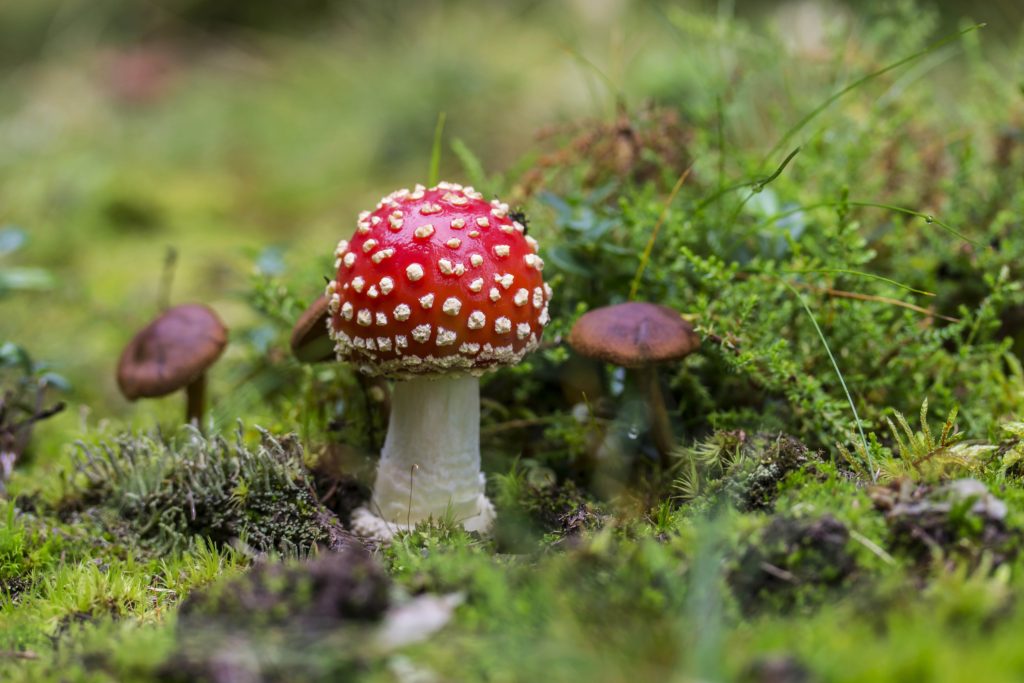
If you don’t know, and a quick refresher if you do know, psilocybin is a compound produced by a number of species of fungi.
Maybe you’ve heard the phrase “magic mushrooms”?
Psilocybin is a chemical component found in the various mushrooms we refer to as “magic mushrooms”.
What is interesting about this chemical is that it is a psychedelic also known as a hallucinogen. When ingested it produces what we call altered states of consciousness or non-ordinary states of consciousness.
What Are Altered States of Consciousness?
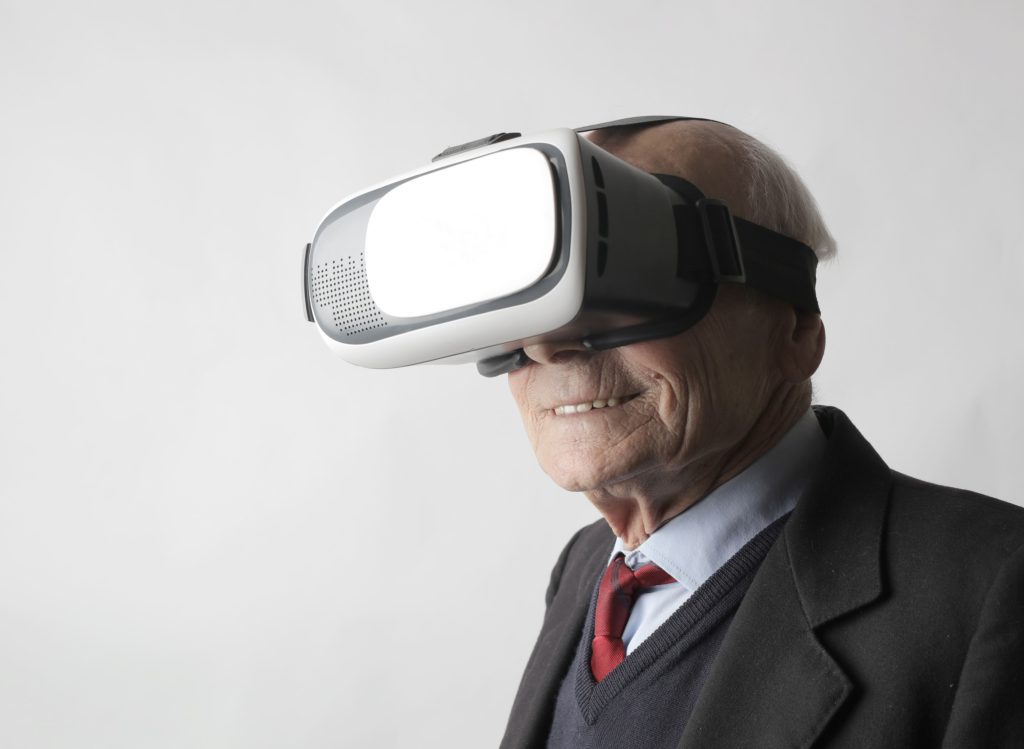
An altered state of consciousness or a non-ordinary state of consciousness includes various mental states in which the mind can be aware but is not in its usual wakeful condition, such as during hypnosis, meditation, hallucination, trance, and the dream stage2.
Why Altered States of Consciousness Are Useful in Anorexia Nervosa Treatment

The use of psychedelic assisted therapy in mental illness has been on my radar for a few years now and receiving this email was a timely reminder for me to delve a little deeper.
Why I became interested in the use of psychedelics in the treatment of psychiatric illnesses including eating disorders is because of my personal experience with using hypnosis as a tool during my recovery from anorexia nervosa. A tool I honestly attribute my recovery to.
Since learning about and utilising the state of hypnosis with my own clients in my private practice it’s become clear to me just what it was about hypnosis that allowed me to recover where I’m not sure I otherwise would have.
At the core of why hypnosis helped me recover was ultimately because it allowed me to access and experience non-ordinary states of consciousness or in other words allowed me to experience different ways of seeing things.
It gave me a chance to not only see but to experience my life from the outside, through a broader lens, from different angles and perceptions than what my ordinary day to day consciousness was capable of.
It is this very experience of allowing people the chance to step outside of what is all consuming to them and see things in new ways which is fundamentally where the interest in using psychedelics in eating disorder treatment lies.
Ultimately it is the ability to see things in new ways for example to see solutions where before there was only problems that the process of recovery is made up of. This is irrespective of how that ability is brought about, be it through the use of psychedelics, hypnosis (more on this later) or other.
Setting the Scene
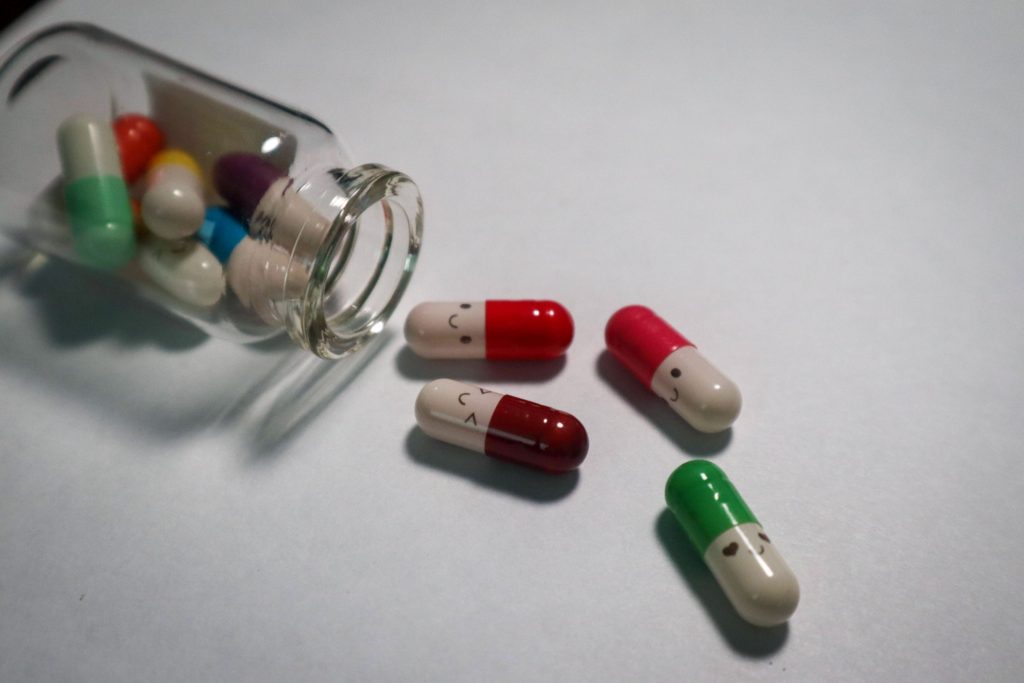
In my lifetime I’ve had relatively little to do with drugs, both medicinal and recreational.
Looking back, it may have even been the fear of not being in control that stopped me from being someone who took recreational drugs but in general I think it just wasn’t something I was ever particularly interested in.
I’ve had many instances of being around friends and partners while they took various drugs from MDMA, acid and mushrooms to cocaine.
My friends were different when they took drugs. After a night out everyone would always be surprised to learn that I hadn’t taken anything because of how well I’d fitted in with the energy like it wasn’t possible to be that happy without having taken something. In all honestly, I loved the energy of being around my friends when they had their walls down.
I loved the feeling of being in a space where the insecurities and the questions of what was possible and not possible were softer and more flexible.
I loved the feeling of when I didn’t have to worry about making anyone else comfortable or protecting or not embarrassing myself.
I will always remember my ex-boyfriend when I was younger taking mushrooms a few times and gosh I liked him better when he was on mushrooms than not.
When he took mushrooms, he was so much more happy, present and loving.
I could see and feel the softness and the kindness.
The stress melted away and his mind become so open.
I have a fond memory of him getting right down on the ground and marvelling at this little patch of sundews (a small carnivorous pink plant that grow flat with the ground).
I remember him excitedly getting me to look at this plant and I remember looking with him but more looking at him.
I remember the joy on his face, the pleasure of this discovery (of these little plants we’d walked past and on most days for years).
He was seeing these life forms as brand new, with new eyes.
He was like a child discovering the world for the very first time.
He was seeing them as possibility and magic.
In that moment those little plants were his whole world.
My feeling of watching him was elation.
Nothing else mattered.
When you live with anorexia nervosa everything matters. There are very few moments of total presence, there are very few moments of joy and just being, there are very few moments of thinking outside the box or of things being easy.
You are perpetually and obsessively focused on getting things right or at least failing as little as possible and pleasing all people. An impossible feat.
When you live with anorexia you are inside your mind and it’s all hard.
Working with people in recovery from anorexia I want to smile and laugh and show them that life is doable. Not all in one go but bit by bit it’s doable.
I want them to think differently, to see their life from different angles, to step outside of themselves, to let down the walls and the fortresses they’ve built in an unconscious attempt to stay small and be safe, but you can’t tell someone to do that and then they “yeah great idea, how come I didn’t think of that? I’ll do it” and then they thank you for your help and walk away.
No, us complex humans are much tricker than that so what we can offer is drugs, psychotherapy, hypnosis, and any other number of things that actually help the person to do the things you can see they need to do and that they want to do but aren’t yet able to.
As I write these words, I can feel how helpful and how useful it would be for someone in recovery from anorexia nervosa to take a hallucinogenic drug to get their mind into a state of awe and possibility and then from that place do the therapy versus what happens now where people are often doing the therapy from a place of fear, hopelessness, and exhaustion.
After all therapy is about the energy, we put into it not about it just being “applied”.
Why Use Psychedelics in Eating Disorder Treatment?
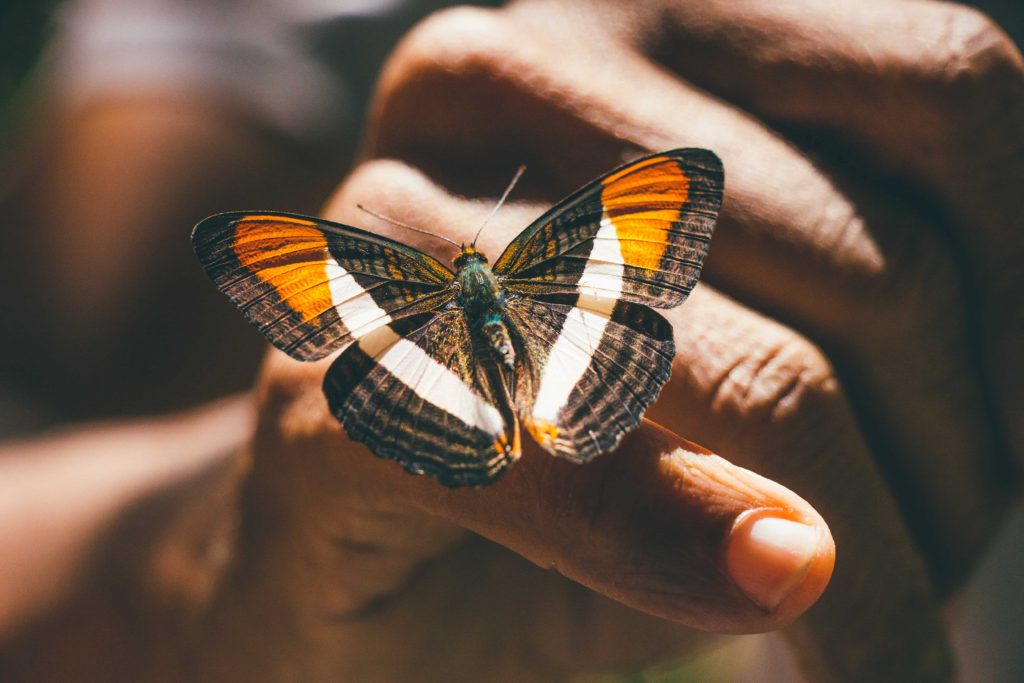
I’m tempted to say – because we’re stuck and lost with what to do – and as I think that I’m reminded of a line I get semi-regularly on my client medical intake forms under the heading “Reason for Choosing Fuelling Success?” and it is a variation of the phrase “last resort”.
The truth is even our most “gold standard” eating disorder treatments are failing people trying to recover but it’s actually not 100% true that we’re clutching at straws by considering psychedelics as a valid part of treatment.
There are real reasons why psychedelics may actually offer what our gold standard treatments cannot.
Psychedelics offer the chance to step outside our reality and crucially the chance to open up new ways of looking at old “problems”.
In a nutshell what this means is that they can offer a direct and tangible means of accessing states of flexibility and creativity people stuck in the mindset of anorexia nervosa are so lacking.
Which is fantastic because as it stands the advice people are most often (and most frustratingly) told is to refeed and gain weight to within a “healthy” weight range and that by doing so this will magically open up their brains flexibility and creativity that’s needed to recovery. Spoiler alert it doesn’t! It is undeniable that nutrition and renourishment play key roles in eating disorder recovery, and I do want to emphasise this, but it is not the be all and end all and to go on treating people as though “just eat” is the ticket to their freedom is helping no one.
It is well documented that one of the prominent symptoms of the illness anorexia nervosa is this incredible level of rigidity. There is an ever-increasing need for routines and control.
Your ability to handle newness, changes and challenges becomes non-existent.
Life shrinks around you.
Outside of your bubble is all too much and the bubble you’re trying to maintain is an impossibility.
I see this in the people I work with when their mum tells me she has to text their husband not to come upstairs after work because their daughter is eating in the living room, and she must have no noise and nothing disrupting her during a meal.
I see this when a client tells me she has to run exactly the same path each day and when there was a woman turning the corner in front of her last week, she almost bolded her over because of her need to stay on the exact same path she always took.
I see this when a client tells me he has a meltdown when two foods of different colours touch each other on his plate.
I remember this in myself when I had to eat at very precise times and only at those times.
It is all these things and more that are the reasons why we would consider psychedelics in eating disorder treatment. For the chance these chemicals offer us to step outside of the brain states that allow us to do think, feel and do the behaviours, thought patterns and feelings we have become so entrenched in doing.
This is where hypnosis comes into the equation because while there’s a definite allure to finally having a medication we could prescribe people with anorexia nervosa (currently there are no medications that work for people living with anorexia nervosa) there are other ways of accessing the brain states we need for change and one is hypnosis…
Hypnosis

In the same way that using psychedelics allows us to step outside our reality and access altered states of consciousness hypnosis is also an altered state of consciousness.
The difference is rather than achieve this state through ingesting substances a professionally trained clinical hypnotherapist assists you to achieve these altered states of consciousness through following a clear set of psychological instructions.
It is the state of altered consciousness that is valuable to making changes.
Not the how we got there.
Two Reasons Why I Would Choose Hypnosis Before Psychedelics
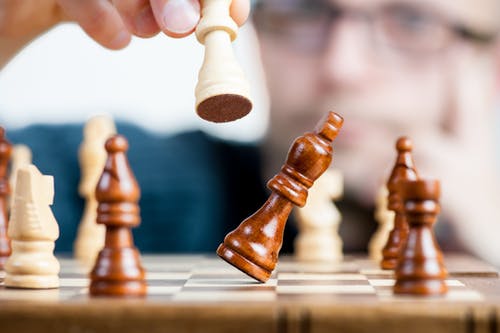
My case for using clinical hypnotherapy over psychedelics such as psilocybin is two-fold, and those reasons are:
There are no side effects to hypnosis
When I was in university the number of medications, we had to memorise for each medical condition we’d be treating when we went off to work in the hospital systems was immense.
I remember meticulously writing down hundreds of medications in an alphabetically organised book. My little book included important things about those medications including what they were used for, their mode of action and their side-effects.
They all had side effects.
The side-effects ranged from mild dizziness, nausea and weight gain to death.
They all had side effects.
When I did go off to work in the real world and started working with real life human beings who were experiencing numerous side-effects from medications they’d been put on without an explanation or warning that these medications may cause side-effects was phenomenal.
So, when a new client comes to see me or phones me and says any variation of the phrase “I want to work with you, but my psychiatrist says hypnotherapy is unsafe” I’m sorry but what’s actually unsafe here is that that therapist has from a position of authority and power clearly given an opinion on a therapy they know nothing about.
Please tell me what’s unsafe about assisting someone to learn how to get their mind to do less of the things they don’t want it to and more of the things they want it to?…
There are a lot of things unsafe about prescribing medications which we are hoping will do the very same thing…
*For the sake of sticking to the topic and keeping this blog as brief as possible I’m not going to make a big deal about it, but to be clear her I am not anti-medications.
Medications are fantastic and offer much good to many people who use them. What I am less for is the blanket usage of them when there are other options that could be used first or alongside and when alongside with a clear dialogue about the possible side-effects and a plan for coming off them if possible.
The second reason I would be choosing hypnosis over psychedelics is for the reason that…
Hypnosis Is Inherently Empowering
Contrary to what Hollywood would have us believe hypnosis is not mind control.
Hypnosis is simply an altered state of consciousness.
And I hope you can understand by now an altered state of consciousness by definition means we’re seeing things differently.
Things that were impossibilities from your “normal” day to day consciousness become more flexible, and more possible.
For anyone who knows what it’s like to live with a mental illness, for anyone who knows what it’s like to be struggling, for anyone who knows what it’s like to be stuck and feeling like you’re at the mercy of your own mind you’ll know how powerless to change you feel.
After all it’s you.
Everywhere you go there you are.
It is for exactly this reason that I am hard and certain and strong that all therapy should be steering the person in the direction of empowerment and increasing their sense of self and autonomy over their own mind, body and life.
All meaningful therapy should be increasing the capacity of that person to be as in charge of themselves as they can possibly be.
Clinical hypnotherapy does this because it teaches us first about how a human mind works, it then helps us to understand how our mind works and ultimately gives us the experience of how to get it to work in ways we’d prefer.
This is empowerment.
When we take a drug, or we attribute our successes to a particular person or therapist we give away our power.
I know how much I wanted someone to help when I lived with anorexia. I know how much I wanted to be able to say, “and it’s because of this person that I recovered”. And you know what now that I am recovered, I do get to say that, just the person I thank is myself. People helped and one person in particular but at the end of the day it was me who did the behind-the-scenes work. It was me who ate the one extra spoonful of ice-cream through the snot and tears, it was me who decided to finally leave the toxic relationship, it was me did the tiny day to day things that no one ever knew and will ever know I did. It was those small things that hurt most, and it was those small things that added up to recovery even though when I was doing them, they didn’t feel enough.
I know I would have taken whatever drug was recommended and I did take antidepressants for a period when I was a teenager. Not that, looking back I was ever depressed, I was just starved and ill-equipped as to how I was supposed to exist in a world that seemed impossibly full of pain and unfairness. Drugs don’t fix those things. Drugs don’t fix the very real and unfair social justice issues of the world and drugs don’t fix a lack of emotional regulation.
It would be so much easier if there was a drug, we could prescribe people living with anorexia nervosa. That’s undeniable but that’s always going to be a downstream approach.
That’s not addressing the real issue and the real issue honestly is what can we do to make the world a better place?
What can we do to make the world a kinder and more meaningful place?
If the world was kind and just I wouldn’t have fallen sick in the first place.
If the world didn’t promote thinness and weight loss as something to be proud of many of the people, I work with today wouldn’t have fallen sick in the first place.
No matter what drugs we create answering these questions are always going to be where our real power for things to be different resides.
The Bottom Line
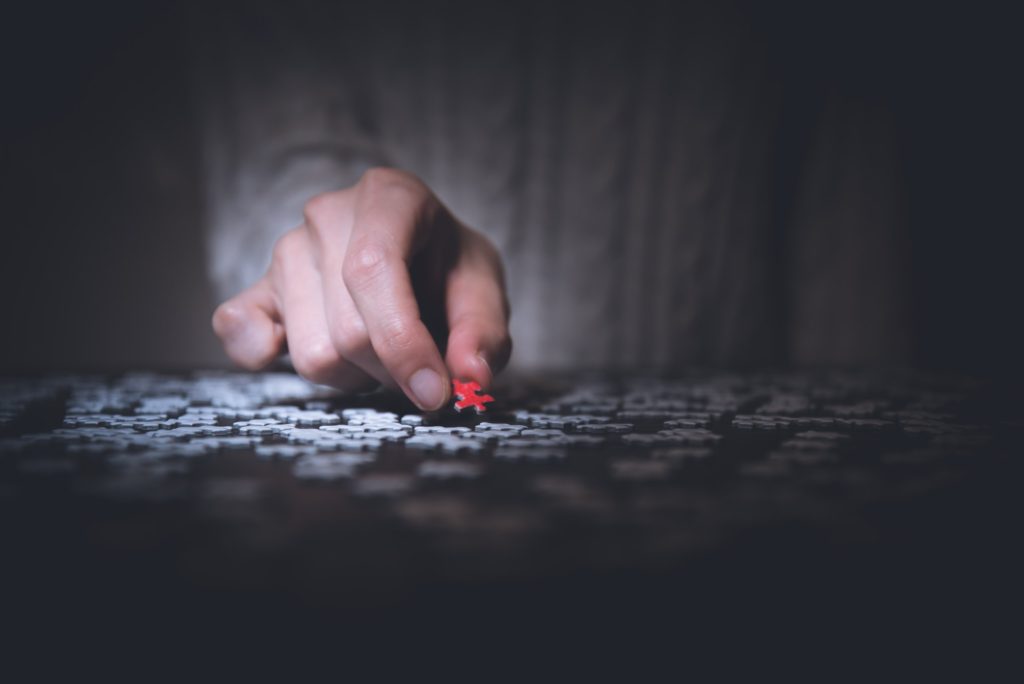
Trying to recover from anorexia nervosa is the definition of stuck.
I know because I did it for 15 years.
There was no down time. Every single day was a battle.
Half a step forward and 26 steps back.
At the time I felt completely alone. As though I was so wrong and so broken. I now know I was not alone in the stuckness I felt during the years I was trying to recover because today I hear it reflected back at me by my own coaching clients.
I hear how deeply they understand that what they are doing is harming them and how much they want to change, and I hear the utter despair, shame, guilt and self-loathing as they try and try and try and just can’t.
To fully recover, to reach recovered it requires more than gaining weight and eating food.
Recovered by definition means doing different, thinking different and ultimately being different.
Therefore, it requires nothing less than a complete transformation.
Psychedelics are one means by which we can access states that allow us to be more open to seeing ourselves and our lives through different lenses and because of this find solutions and make changes.
Clinical hypnotherapy is another.
The bottom line is recovery from anorexia nervosa is difficult, people find it hard, many people don’t recover fully ever, and many people die trying.
The bottom line is we so far don’t have a one size fits all super successful treatment to offer.
We’re trying, my gosh there is a lot of money and passion going into trialling new treatments just like the one that kicked off this blog on psilocybin. That trial will be a drop in the ocean of the things that we are researching for how to help people recover from eating disorders.
The bottom line is you must find what works for you.
And on that note, I’m going to leave you with the words of someone much smarter than myself.
A man who used hypnosis regularly for exactly the purposes of what I’ve talked about here, accessing non-ordinary states of consciousness which were crucial to the incredibly creative and unarguably important work he did in his lifetime and the legacy he left…
“We cannot solve our problems with the same thinking we used when we created them”.
~ Albert Einstein.
With my whole heart I hope you found this information useful and inspiring.

Become Great. Live Great.
Bonnie.
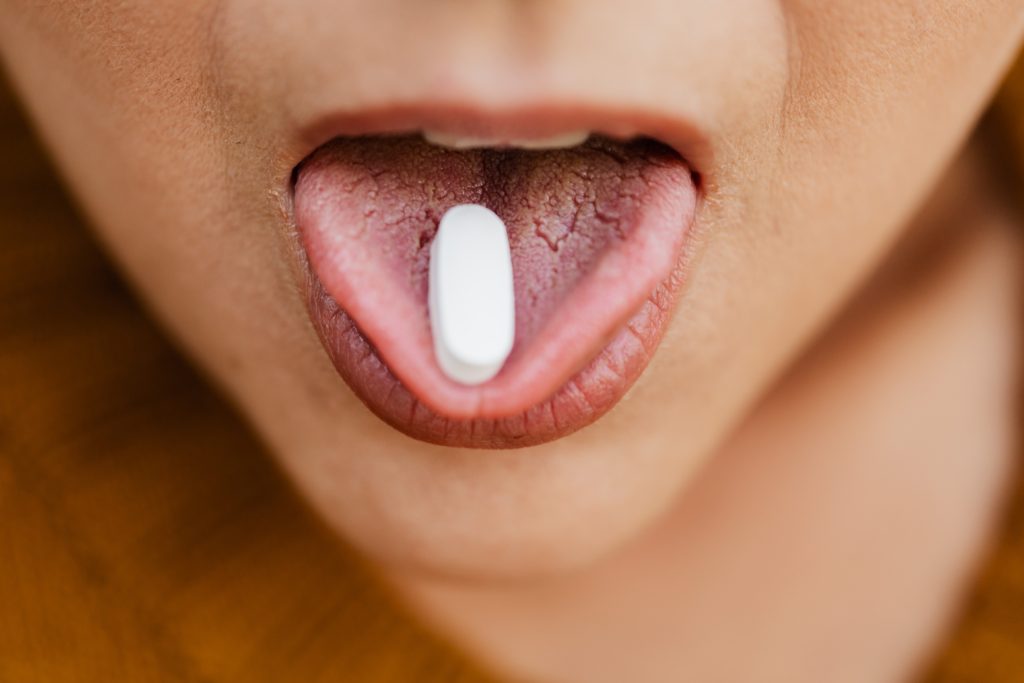



3 thoughts on “NEW: The Use of Psychedelics and Hypnosis in Eating Disorder Treatment. What You Need to Know.”
Itís hard to find well-informed people for this subject, but you seem like you know what youíre talking about! Thanks
Hello Bonnie, Thank you for your insights. I am also a hypnotherapist, in practice in the Atlanta area for 35 years. When I recently watched the Netflix documentary on the use of psychedelics in therapy, I was fascinated. I felt there was a connection between hypnosis and the expanded states of consciousness people experience with certain drugs. Your article explained it all so beautifully.
I also just learned that my 13 year old granddaughter has been diagnosed with an eating disorder, most likely anorexia. They are suggesting a 6 week in-patient treatment center for her. I have worked with a few eating disorder clients throughout the years, but I am certainly not an expert in this area. Do you have any specific suggestions that are particularly helpful to use in this type of hypnosis? I am drawn toward ideas of greater love and acceptance her body, dealing more effectively with anxiety and stress, and using techniques of future pacing to life free from this disorder. I would love any other ideas you could share.
Thank you,
Karen Branch
Hi Karen,
Thank you for taking the time to give me this feedback on this article. I appreciate it and am happy it helped things make sense for you and you found value in it.
You are welcome to email me at [email protected] or on Instagram @fuelling_success so I have your email address and it will be easier to chat there because with everything you’ve said in terms of the “ideas you are drawn towards” you are correct. It’s about what is priority, what will have the greatest impact, how your granddaughters mind works/what is important to her and how she can develop her skills, resources and capabilities to exist (thrive) without the eating disorder…
It is very exciting to hear from a fellow clinical hypnohterapist especially with a 35 year career. I am sure there are many things I could learn from you also. Please do get in touch.
Warmly,
Bonnie.